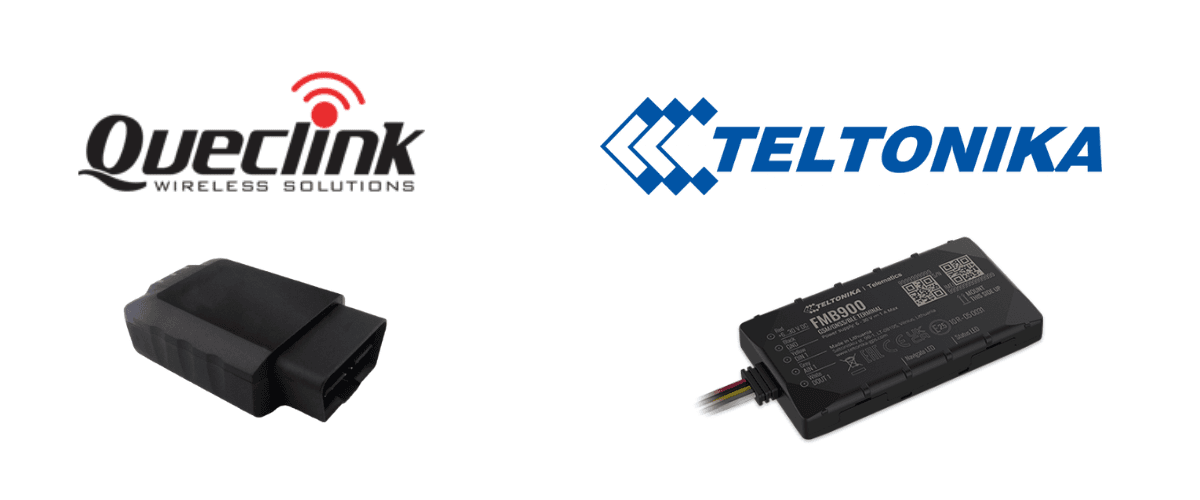How to select the best GPS vehicle tracking device
With all the variety in GPS vehicle tracking devices on the market today, how can you possibly choose the best one for your business? GpsGate gives you valuable insight on what to consider when choosing GPS devices to grow your fleet management company.
Fleet tracking is an ever-expanding industry. Innovations in telematics are making it easier for GPS fleet operators to monitor diverse fleets across the globe. But a challenge remains – with so many options for GPS vehicle trackers, how can you possibly choose the best option for your business?
In today’s market, there are thousands of tracking device options. Depending on the manufacturing brand and device model, you will find differences in price, quality, and features. The good news is that GpsGate’s platform has integrations with nearly every device manufacturer on the market, so compatibility isn't an issue. Testing devices is quick and easy with GpsGate.
Test 5 devices for free on GpsGate, always
Align customer needs with your capabilities
Most end users need some type of real-time GPS tracking. But beyond that, it’s important to consider the specific problem your customer is trying solve. Is fuel theft or cargo protection an issue in their region? Are they looking to eliminate speeding and cut down on harsh braking? Focusing on your customer's needs will better inform your GPS tracking options.
From there, develop a step-by-step approach to device integration at your company. What are the costs involved with in-vehicle device installation? What will integration into your GPS tracking solution look like? Confront the real costs involved in onboarding new customers to track their fleet with you. Balancing their needs with your capabilities makes for a better customer experience and a healthier bottom line.
Think of scale and start small
In the beginning stages of your business, there is usually no need to offer more than a few GPS vehicle trackers. Fleet security, cold chain transport, electric vehicles? Customers within your chosen market have similar use cases and therefore similar tracking device needs. Using an economy of scale mindset will help you to stay efficient. Factors like internal management decisions and hardware unit costs have a big impact on your growth potential.
Selection criteria for GPS tracking devices
Again, the business needs of your customers will steer you in the direction of a great tracking solution. In today’s market, devices with every function are available. But why would your customers pay for premium features they don't need? For the biggest impact, weigh the GPS device costs with the essential needs of your customers.
Dig deeper and consider the following:
- Can you configure and maintain the device remotely? If the device is hard to manage from afar, you may need to go on-site more often that you want to – this becomes costly.
- Is the device stable? Devices should maintain connectivity and always capture data. A device that's not capturing data, isn't providing value. To work wonders with your customers, you'll need to connect your GPS devices with the right fleet software.
- What critical feature does the device need to have? Fuel monitoring, long battery life, resistance to water or heat - think core functions first, bells and whistles later.
- What are the differences in quality and cost between hardware manufacturers? Measure hardware costs by considering the lifetime of the device, as well as the costs involved in repairs or installing new hardware. A hardware company that can offer you robust support is beneficial in the long run.
- How will network connectivity affect my customers? With 2G networks phasing out in some regions, it's important to research what infrastructure is available for your customers in the long term.

Common GPS vehicle device types
- Use portable GPS tracking devices with any vehicle in a fleet. These device types are not mounted to a vehicle so the functionality is often more basic - and sometimes it's a lower-cost option.
- Install vehicle-mounted GPS trackers for a more permanent solution. These devices often connect directly to a vehicle system for more advanced GPS tracking options.
- Use a Windows laptop connected to a GPS device when the customer needs to share one GPS signal with multiple applications. For more details on this use case, check out GpsGate Splitter.
Final steps in making a GPS tracking device selection
- Choose hardware supported by GpsGate. Our fleet management platform has integrations with all major device manufacturers. Don't see your device? Let us know and we'll integrate it for your business case.
- Test it! Experiment with a few devices before committing on a larger scale.
Looking for more guidance on this topic? Contact us. We’re happy to share our testing experience and refer you to one of our trusted device manufacturing partners.
Our vision at GpsGate is to make fleets greener, safer, and more productive. We pride ourselves on having an agile, customizable platform that solves complex use cases.
- acceptCookies - We use this cookie to remember if you have closed this window or not.
- country - We use this cookie to serve you country-specific data.
- gg_sessionId - This cookie helps us debug sign-up issues and general errors.
You can read more about cookies and privacy here.